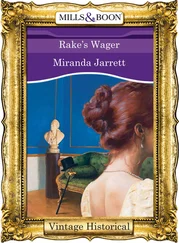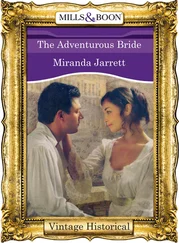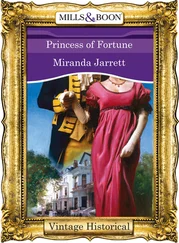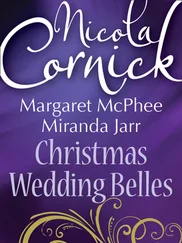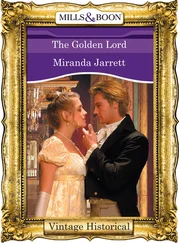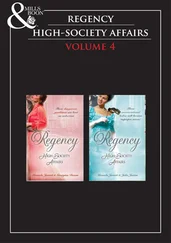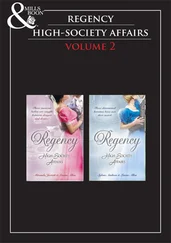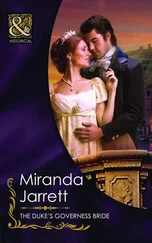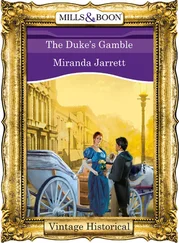“Mr. Winslow isn’t here,” she answered, so quickly that he was sure she’d been anticipating the question. “He is—he is away at present.”
“Is he indeed?” George was surprised; he knew the agent had been quite specific about his visit since there’d been so few inquiries about the house.
“Indeed, he is.” She flushed as she noticed his gaze shift to her clasped hands, looking for a wedding ring. “Mr. Winslow is my father, not my husband. I can show you the house every bit as well as he.”
He held his hat before him and bowed, just from the waist, and smiled. She deserved that from him. It wasn’t any of his business whether she had a husband or not. Still, for some reason he was glad she wasn’t married to the ne’er-do-well caretaker, but instead merely burdened with the rascal as her father. “Then show away, Miss Winslow. Show away!”
She didn’t smile in return the way he’d hoped, though the flush remained in her cheeks. “You will not like the house.”
He frowned. “Why are you so certain?”
“Because none of you fine London-folk do.”
“Then it is a good thing I am neither from London, nor what you would deem ‘fine’, being a sailor,” he said, wondering why the devil she seemed so determined to warn him away. “You are not quite as knowledgeable as you believe yourself to be, Miss Winslow.”
“Nor am I quite so ignorant as it pleases you to think,” she said. “Even here in Kent, we have heard of the ‘Silver Lord’. Rich as the king himself, they say you are now, and all from plundering that Spanish treasure ship.”
“‘They’ do not always tell the truth, Miss Winslow.” He should have realized his new fame would have preceded him, even to this remote place, and he doubted he’d ever grow accustomed to that hideous soubriquet that his own brother Brant had concocted. But unlike the greedy admiration and interest his good fortune had brought him in London, this woman seemed disdainful, her gaze patently unimpressed as it swept over his uniform.
“Now shall you show me this house, Miss Winslow,” he asked, “or will you leave me to find my own way?”
He couldn’t tell if she sighed with resignation, or irritation, or simply took a deep breath as she turned towards the first room to the left of the hall.
“The oldest part of Feversham Hall was built in 1445 by Sir William Everhart,” she began, lecturing like a governess with her hands folded before her at her waist. “It was supposed to be called Rose Hall, but the Feversham stuck instead because of the fevers and miasmas that rose each summer from the marshes. They say from fear of fevers, Sir William wouldn’t come down from London until he’d been assured of a killing frost.”
“I can understand the old gentleman’s reluctance,” said George as he followed. “I saw what yellow-jack could do to an entire fleet in Jamaica. I wonder that you don’t worry for your own health, Miss Winslow, living so near to the marshes.”
She paused, staring at him as if he’d asked the most foolish question in the world. “I have always lived near the marshes, and I cannot imagine living anywhere else. Besides, it’s only the outsiders that are stricken with the fevers. We folk that live here always are never touched.”
“So if I were to make this my home,” he asked, “then I should never be touched either?”
“Shifting your home to here would make no difference at all,” she answered firmly. “Not even you can have whatever you wish to buy. At Feversham, you would always—always—be an outsider. Now here, this is the front parlor.”
He frowned, tapping his thumbs along the brim of the hat in his hands. He was accustomed to being obeyed by his crewmen and most everyone else he encountered in his life, and he certainly hadn’t been corrected with such directness by a woman since he’d left the nursery.
The same woman who’d just turned her back to him—to him!—and was now walking briskly away as if he were nothing more than that lowly stable-boy.
“Miss Winslow,” he said, his voice automatically marshalling the authority of the Nimble’s quarterdeck. “Miss Winslow. Have you forgotten that I have come here solely to inspect this house for the purpose of making it my own?”
Slowly she turned, her hands still clasped before her, and gazed at him over her shoulder with unsettling evenness, almost as if they were equals.
“I have forgotten neither your purpose nor mine, no,” she said, her head tipped to one side so the pale light slipped across the curve of her cheek. “You are here to see Feversham, just as I am here to show it.”
He let out his breath slowly, unaware until that moment that he’d been holding it. “I am glad you have recalled your duty, Miss Winslow.”
“Yes, Captain My Lord.” She turned her head another fraction to the left as she dipped a quick curtsey of unconvincing contrition. “I recall everything. My duty, and my miserable low station before my betters. I shall not forget either again, Captain My Lord.”
Before he could reply she’d swept into the next room, tugging aside the heavy curtains at the windows. Weak sunlight, swirling with motes, filtered through the tiny, diamond-shaped panes and drifted over furniture shrouded in white cloths like so many ghosts. Miss Winslow didn’t glide through the parlor like London ladies, but went striding across the patterned floor so purposefully that her black skirts flurried and fluttered around her ankles in white-thread stockings.
But the skirts and the ankles were the least of it. Why in blazes did he have the distinct impression that by agreeing with him as she had, she’d still somehow bested him?
“There are sixteen chairs made of the same Weald oak to match the panelling,” she announced, twitching aside a dropcloth to display the tall-backed armchair beneath it. “It is considered most rare to have the complete set like this.”
Most rare the chairs might be, but George was in no humor to appreciate it. “That chair is a right ugly piece of work, Miss Winslow,” he said testily, “whether it has fifteen brothers or a hundred, and I’d wager it’s barbarously uncomfortable in the bargain.”
“That is your judgment, My Lord.” A fresh spark of challenge lit Miss Winslow’s gray eyes as she flipped the cover back over the offending chair. “The last master, Mr. Trelawney, appreciated the old ways in his home.”
“Or perhaps,” said George, “Mr. Trelawney was simply too tightfisted to make the necessary renovations to bring the old ways up to snuff with the new.”
“And what if he was, Captain My Lord, or what if he wasn’t?” she demanded tartly. “It’s been four years since Mr. Trelawney died, and nothing has been changed in that time. I told you the house wouldn’t suit you.”
George raised a single brow. “I haven’t said that it didn’t, have I?”
“You’ve as much as said it, saying everything’s gone fusty and shabby,” she said, her voice warming. “The other Trelawneys up north aren’t about to keep up with London fashions and improvements when what’s here will serve well enough. Times are hard, what with the wars and all, and the Trelawneys aren’t the sort to go tossing good coins after bad for no reason.”
“But what a wonderfully fine thing their carelessness is for me, Miss Winslow,” countered George, “especially if the shabbiness of the ‘old ways’ lowers Feversham’s asking price.”
She dipped her chin, letting the words simmer and stew between them. Too late she’d realized he’d been teasing her, and clearly the knowledge hadn’t made her happy with him, or herself, either.
“Through these doors lies the dining room,” she said curtly, turning with an abrupt squeak of her heel to lead the way.
Читать дальше


